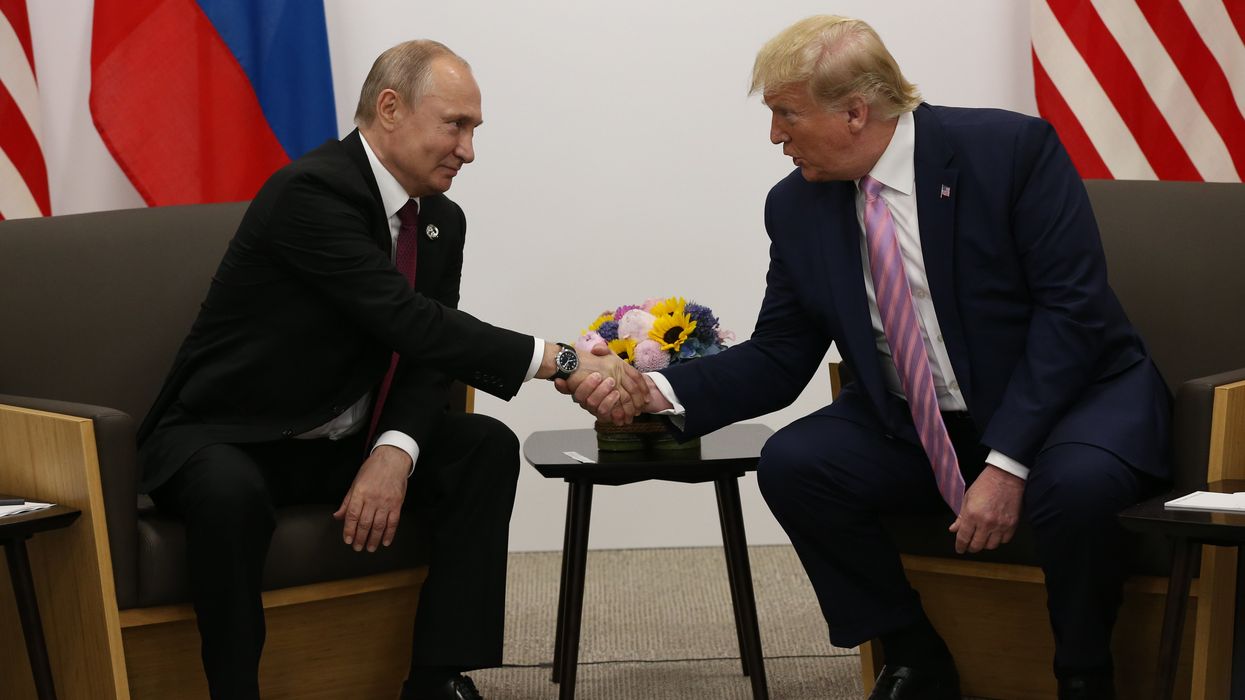Our President has proposed a shameful give-away of Crimea and an additional chunk of Ukraine to Vladimir Putin. This compounds President Obama’s shameful acquiescence in Putin’s seizing Crimea, and President Biden’s also failing to live up to the security assurances that the United States and Russia gave Ukraine in 1994 when Ukraine agreed to give up its nuclear arsenal in the Budapest Memorandum.
From my experience as a litigation attorney who participated in numerous mediations before retiring, I have found that successful mediations require a realistic assessment of the strengths, weaknesses, wants, and needs of the parties, including their willingness to take a calculated risk. In court, one never knows what a judge or jury will do. The outcome of war is likewise uncertain. In negotiations, wants should not obscure a realistic assessment of one’s needs. A party’s unmet true nonnegotiable needs can justify the risk. What are the needs of Ukraine, Russia, and the West?
Ukraine’s nonnegotiable needs are its survival, sovereignty, and statehood.
Russia’s purported “core” needs are a hodgepodge of propaganda. Surprisingly, Putin has not cited the history of Napoleon’s and Hitler’s invasions of Russia to assert that Russia needs Ukraine as a buffer against Europe. Instead, he has claimed Russia needs to destroy neo-Nazis and drug addicts in Ukraine who somehow threaten Russia. His real motivation is his belief that the 1991 breakup of the Soviet Union insulted 1,000 years of Russian history. In the tradition of past Soviet dictators and early Russian empire builders, he wants a new Russian Empire that reclaims Ukraine and the nations of Eastern Europe that were once under Soviet domination. These are not “needs” but “wants” of a megalomaniac. Putin’s hodgepodge of propaganda obscures his fear that Western democratic values in Ukraine will undermine his regime and his personal quest to reestablish a glorious Russian Empire.
Russia’s real needs are to prevent its economy from collapsing, rid itself of its latest dictatorship, and obtain firm security guarantees from the West and Ukraine. Putin’s Soviet-style dictatorship is likely vulnerable to the same internal rot that collapsed the Soviet Union. Russia is sapped after three years of heavy war losses and increasingly severe economic weakness under Western sanctions. Despite Putin’s bluster, Russia is at serious risk for, if not on the cusp of, economic collapse. Rot in its military manifests in its shooting surrendering Ukrainians, repeatedly bombing innocent civilians, and needing troops from North Korea. Russian soldiers are wasted in waves against stout Ukrainian defenses.
The West’s need is to end Putin’s threat to world peace. His demands for a cease-fire would neuter Ukraine for Russia’s eventual takeover, allow Russia to dig out of its predicament, and allow Russia to rebuild itself to continue Putin’s quest. Ukraine and the West should firmly oppose Putin so that the Russian forces can be removed from Ukraine, the threat to Europe can end, America’s mineral investment in Ukraine can be protected, Putin can fall, and democracy can develop in Russia.
Here is how: (1) Impose the heaviest sanctions possible; (2) Adopt and supplement retired Admiral James Stavridis’ concept of a renewed Reforger by also threatening to, and being prepared to move American and European combat soldiers into Ukraine; (3) Ensure that these troops and the Ukrainians are well-supplied and armed for conventional war, and protected by air support and defenses; and (4) Forcefully meet Putin’s anticipated threat to use nuclear weapons with our own threat to do the same. This should bring a cease-fire, meaningful negotiations, and tend to Putin’s demise.
Putin masks his weakness by threatening the use of nuclear weapons. So far, he has cowed three presidents with these threats. The risk that Russia would start a nuclear war is no greater than the risk that we would. China and other Russian leaders will not let Putin and his circle go that far. Recent history demonstrates that Russia will back down when faced with a credible counter-threat of nuclear destruction. On October 25, 1973, the Soviet Union was about to intervene militarily on the side of the Arabs in the Yom Kippur War between Israel and a coalition of Arab states. America initiated Defense Condition (DefCon) III, putting our nuclear-armed forces on high alert, just short of getting them ready for imminent use under DefCon II. Troops of the 82nd Airborne Division readied to board aircraft for deployment. U.S. aircraft carriers moved toward the Eastern Mediterranean. The Soviets stood down.
World peace requires that the full force of American and European power be brought against Putin.
Daniel O. Jamison is a retired attorney.




















Trump & Hegseth gave Mark Kelly a huge 2028 gift